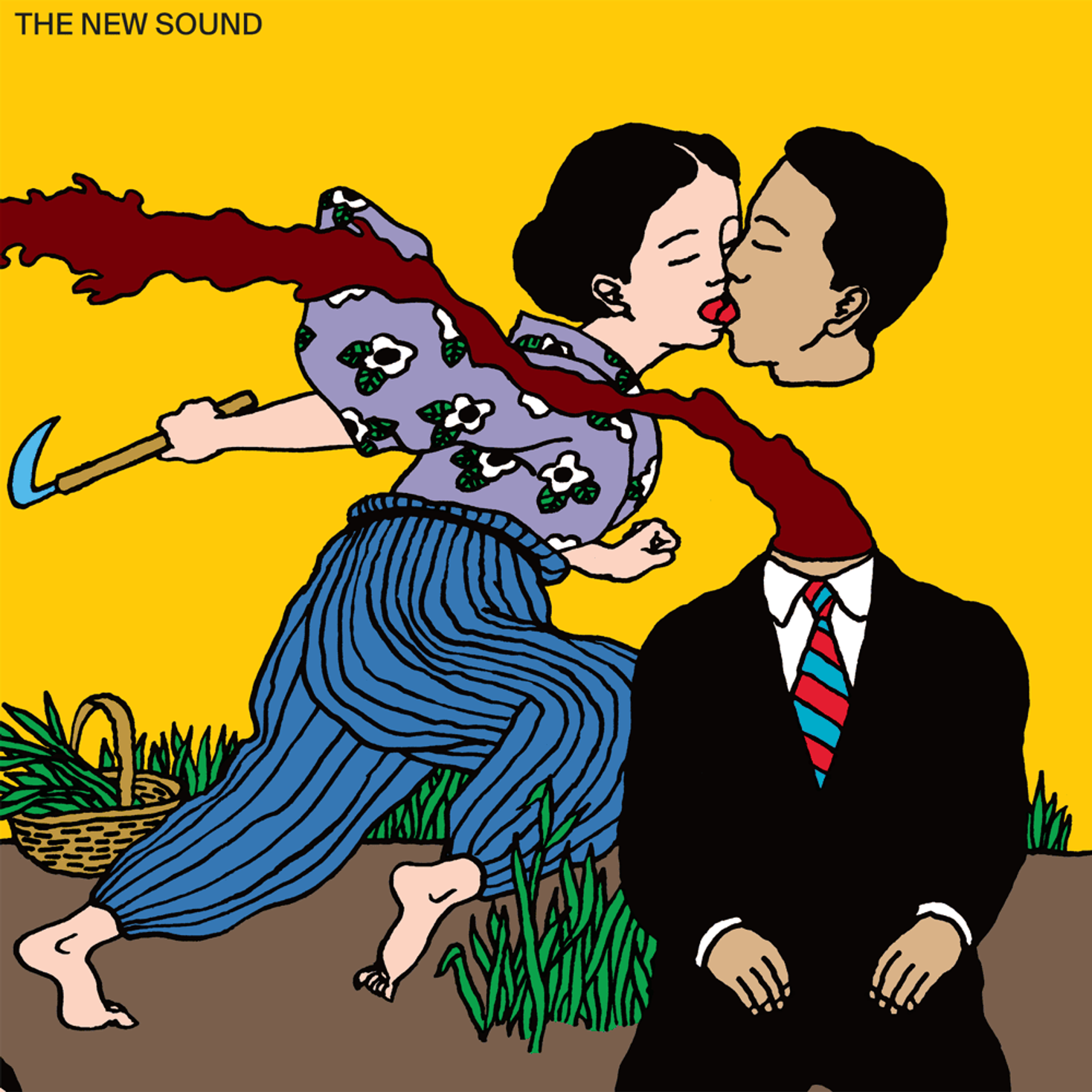
News
When Professors Speak Out, Some Students Stay Quiet. Can Harvard Keep Everyone Talking?

News
Allston Residents, Elected Officials Ask for More Benefits from Harvard’s 10-Year Plan

News
Nobel Laureate Claudia Goldin Warns of Federal Data Misuse at IOP Forum

News
Woman Rescued from Freezing Charles River, Transported to Hospital with Serious Injuries

News
Harvard Researchers Develop New Technology to Map Neural Connections
‘The New Sound’ Album Review: Wholly Innovative, Masterfully Crafted
4.5 Stars

One grapples with their delusions of grandeur in a number of ways. The cognitive dissonance between the reality of our lives and the image we’ve constructed of ourselves in our minds presents a distinct challenge to our normal course of operation. It’s a kind of suffering, an existential question about identity that never has an easy answer and can easily lead to the destruction and disappearance of the self.
This isn’t a question in “The New Sound” by Geordie Greep — it’s reality. Each song approaches the suffering of the album’s main character, an unnamed man whose sense of self is slowly crumbling over the course of the project. Yet, the piece manages to pair its devastating lyricism with instrumentation that helps it go down smoothly.
It’s a masterful balance to strike, and one that the album accomplishes while being entirely unflinching in its genre-bending, avant-garde style. Greep is not unfamiliar with that work, though. His time in the band black midi, which announced a hiatus earlier this year, brought together elements of jazz, prog, and hard rock to create a sound that was truly its own. “The New Sound” has all the benefits of Greep’s experience, but it does not feel bogged down and stuck in the past. It is not a black midi project, it is a Geordie Greep project — and thank goodness it is.
Each track feels audibly fresh, as if the Latin- and salsa-inspired instrumentals could rip through the listener with the breakneck lead guitar and anxiety-inducing drumming, drawing the listener deeper and deeper into this cruel world that Greep has developed for his main character and subject. Even in tracks that slow the pace down significantly, like “The Magician” or “Terra,” the pared-down and exposed quality of the band’s playing feels like an invitation — a step further into Hell.
The album’s lead single, “Holy, Holy,” particularly exemplifies this magical interplay between lyrics and instrumental.
Even from the track’s beginning, it is clear that something is off, as Greep delivers the first line over a syncopated drum line — hinting that beneath the surface of the character’s presentation, something darker lies. He repeats himself, trying to get the woman he’s flirting with to recognize how important he is: “You know my name? Of course, you know my name. Everyone does; it’s true. It’s true, it’s true, it's true.” But then we hit the bridge, and the game is revealed.
Every step of the interaction between our main character and this woman was paid for, from her outfit to her reactions to his advances. She feeds his image of himself, despite the reality that it’s all a façade. He objectifies her, telling her, “I’ll have you too,” all as a way to prove to himself and whoever’s watching that he is some ladies’ man, capable of anything.
Some lines during the bridge are utterly devastating, revealing the main character’s misogynistic ideal of female subordination: “When I tell you your pussy is holy, I want you to slap me and then kiss me. Make sure everybody’s watching, kiss me and then walk away.” As the end of the song nears, he’s revealed to be entirely pitiful and desperate to be recognized as who he perceives himself to be, no matter the fee, singing “I want you to put your hand on my knee. Will that be alright? I want you to look at me as if you’re lost. How much will that cost?”
The other tracks on the album show the character’s misshapen idea of manhood, maturity, and his own suffering playing out across his life. From him masturbating under a blanket in his room that “smells of cigarettes and carrion” in “Blues” to the shallow sexual encounters for which he pays a prostitute in “Walk Up,” Greep paints a distinctly depressing portrait, almost humorously summed up in the skit at the end of the latter song.
No song on the album falls flat. Each in its own way — and with its own style — manages to highlight the essentially human feelings of guilt, shame, and disappointment. Ultimately, as the listener falls deeper into the album, into the pits of despair that Greep has crafted so brilliantly, the only resolution — the only fact, as pointed out in “Blues” — is that “very soon you’ll disappear, soon you’ll disappear. You’ll be fine, just relax. Soon you’ll disappear.”
Eventually, our protagonist does disappear, or at least, “like the Magician disappears from no one, he speaks until his voice becomes sand. He disappears after a while.” The album concludes with a cover of “If You Are But a Dream,” originally published in 1942 but given entirely new meaning in the context of the rest of the album.
“The New Sound,” with its intricate, complex melodies and sharp, biting lyricism, makes for a masterful debut solo project from Geordie Greep.
Want to keep up with breaking news? Subscribe to our email newsletter.
